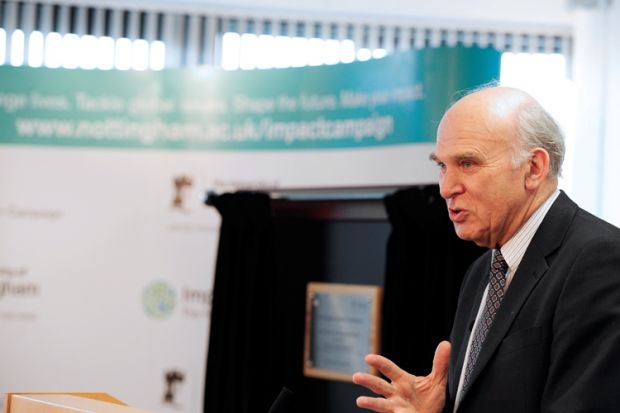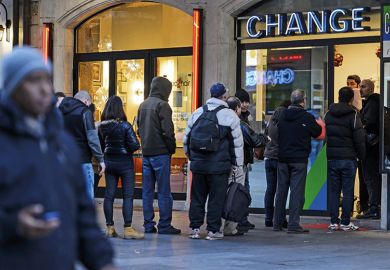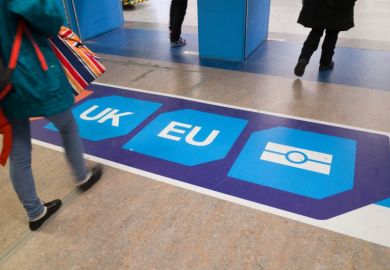Universities will be the “main casualties” of the UK leaving the European Union, according to former business secretary Vince Cable.
Speaking to Times Higher Education the day after Theresa May outlined her plans for Brexit, Dr Cable also predicted that universities will probably lose the funding that they get through participation in EU research programmes, despite the prime minister hinting that the government would make remaining in them a key goal of the exit negotiations.
“Universities are going to be the main casualties of [coming out of the EU],” he said. “One [problem] is the loss of overseas students. They will [also] lose Horizon [2020 funding]. Theresa May said yesterday that she wants to keep that, but we’ll see.
“Third, there’s the insecurity of the European staff, of whom there are large numbers. Universities are worrying themselves silly with this, with good reason.”
Dr Cable also raised concerns about Ms May’s plan to remove the UK from the European single market, suggesting that it could have been possible to make a deal around the free movement of people that would have benefited universities given that other countries had “cherry-picked” on single market rules themselves in the past.
“I spent five years negotiating single market policy over things [such as] the recognition of professions,” he said. “So, if you’re a doctor, can your qualification be accepted through[out] the EU? The Germans would not accept it. They would not accept free movement applying to professional qualifications, they just opted out, they cherry-picked. Something the British are accused of doing.”
Dr Cable made the comments while speaking about a new massive open online course (Mooc) that he has led on designing, entitled The Politics of Economics and The Economics of Politicians.
He said that his motivation to set up the course, which is being hosted on FutureLearn – the Open University’s social learning platform – in conjunction with the University of Nottingham, came about through his fascination over the link between academic economists and politics, and how ideas are translated into policy.
When asked whether governments had placed too much importance on economists, Dr Cable said that he didn’t “buy the proposition” that economic arguments were “no longer valid”. He added that comments made during the EU referendum campaign that the nation had had enough of “experts” were “very stupid”.
“Clearly, most people do respect the views of scientists [and] doctors,” he said. “I know [that Donald] Trump is challenging climate change, but for the most part we do accept that if scientific and medical research comes up with evidence, most people trust those people. Even economics, in its rigorous sense, is still respected, I think. We [had] ‘experts’ in the department to advise me, and I took the view that we should listen to them.”
Register to continue
Why register?
- Registration is free and only takes a moment
- Once registered, you can read 3 articles a month
- Sign up for our newsletter
Subscribe
Or subscribe for unlimited access to:
- Unlimited access to news, views, insights & reviews
- Digital editions
- Digital access to THE’s university and college rankings analysis
Already registered or a current subscriber?






